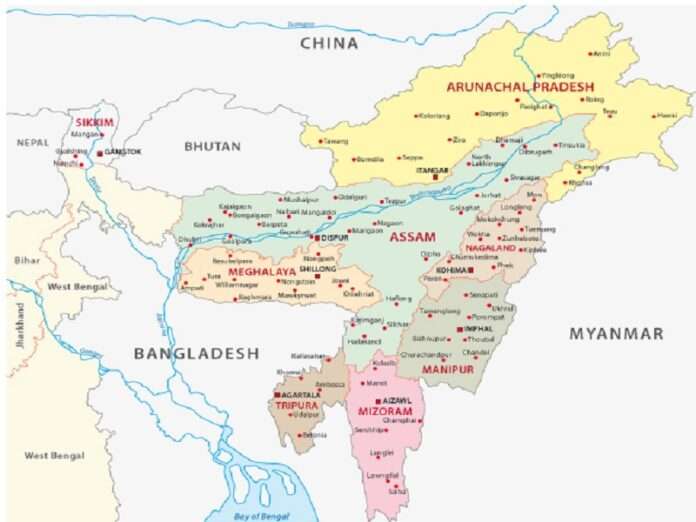Russian Foreign Ministry spokeswoman Maria Zakharova lambasted the West during a press conference on Thursday for its officials’ meddling in Bangladesh’s next general elections in January. She described their concerns about “free and fair” elections as “neocolonialism” and “a manifestation of the nature of metropolises and their attitude towards their colonies”. This is an accurate assessment since they’re arguably scheming to carry out regime change or at least push “regime tweaking” in Bangladesh.
This South Asian state practices “an independent domestic and foreign policy that meets [its] interests” just like Zakharova claimed as proven by its multi-alignment between key players in the New Cold War, though that’s precisely why the West wants to pressure it. They expect that a combination of Hybrid War means can be effectively wielded to bully Bangladesh into subordinating itself as one of their largest vassals in the world.
To that end, they’re relying on the multidimensional approach of: 1) information warfare preconditioning the global public to suspect fraud if the ruling party wins the next elections; 2) implied sanctions threats in that scenario; and 3) a wink of support for the opposition if it decides to riot afterwards. Should the third step of this sequence transpire, then whatever the security services do to restore law and order will be exploited by the West to exacerbate the prior two steps of this pressure campaign.
In short, the West is plotting to catalyze a self-sustaining cycle of destabilization as punishment against the ruling party for remaining committed to its multipolar policies. Raising awareness of these plans shouldn’t be misinterpreted or spun as hinting that they’ll succeed or as lending support to them since it’s a public service aimed at counteracting the West’s pernicious manipulation of global perceptions. This plot isn’t being devised just for prestige or revenge, however, but in pursuit of geopolitical goals.
Bangladesh is geostrategically located in the north of the Bay of Bengal between India and Myanmar, which also places it in very close proximity to Bhutan and Nepal, not to mention nearby China too. Its “economic miracle” since independence has recently begun fading as a result of global volatility hitting its expert earnings and thus its foreign reserves, which set into motion a chain reaction of uncertainty that’ll predictably be taken advantage of by the West to put further pressure on the ruling party.
As more voters begin experiencing the socio-economic consequences of these developments, they’ll become more susceptible to information warfare narratives blaming the authorities for their plight despite the root cause of this potentially impending crisis objectively being beyond their control. In a domestic context that’s already rife with fierce partisanship, it’ll be comparatively easier for local and international forces to concentrate rising anger against the ruling party over the next half-year.
Western officials’ concerns about “free and fair” elections are the dog whistle for signaling that violence after the vote won’t be condemned by them since they’re conveying the notion that it would supposedly be an acceptable response to alleged fraud. The resultant instability in this densely populated country of around 170 million people could then be weaponized to pressure India into also reconsidering its sovereign policies in the event that it spills beyond Bangladesh’s borders to the latter’s Northeast Region.
That part of this globally significant Great Power already has a long history of unrest, with this manifesting itself most recently through the problems that arose a few months back in Manipur. Even in the best-case scenario that the troubles there remain under control, which can’t be taken for granted since the systemic roots thereof will take a lot of time to adequately address, Northeast India will still remain at a high risk of being adversely affected by any serious crisis in neighboring Bangladesh.
The porousness of their borders and presence of closely connected communities on both sides greatly reduces the chances that chaos there could be completely contained, thus cynically making such a scenario attractive to the West’s liberal–globalist policymaking faction. This group of people hates that their pragmatic rivals convinced the US government to accept the futility of turning India into a vassal and is thus obsessed with continuing that crusade against it for ideological reasons as explained here.
It’s therefore not far-fetched to suspect that the “number of Democratic US congressmen to Secretary of State Antony Blinken, calling for assistance in conducting ‘free and fair’ elections in Bangladesh”, who Zakharova called out last week, are actually driven by the desire to indirectly destabilize India. Newly appointed US Ambassador to India Eric Garcetti’s recent remarks about the humanitarian consequences of Manipur’s latest problems are also worthwhile mentioning in this context.
His words sparked a scandal in that country since some regarded them as violating diplomatic norms after he commented on the domestic affairs of his hosts despite him only do so in response to a question about this subject. Nevertheless, Garcetti’s remarks still revealed how the US government officially views this situation, which could be twisted by liberal-globalists as the basis for politicizing events there if Bangladesh is thrown into crisis early next year and the resultant instability spills into Northeast India.
With these interconnected variables in mind, there are grounds to conclude that growing Western pressure on Bangladesh might presage forthcoming meddling in that historically restful region of this newfound American partner, which could be preplanned or opportunistic. In any case, it’s a credible enough threat for Indian policymakers to take seriously and thus do their utmost to preemptively avert, to which end they can be expected to help strengthen Bangladesh’s “Democratic Security” if requested.
